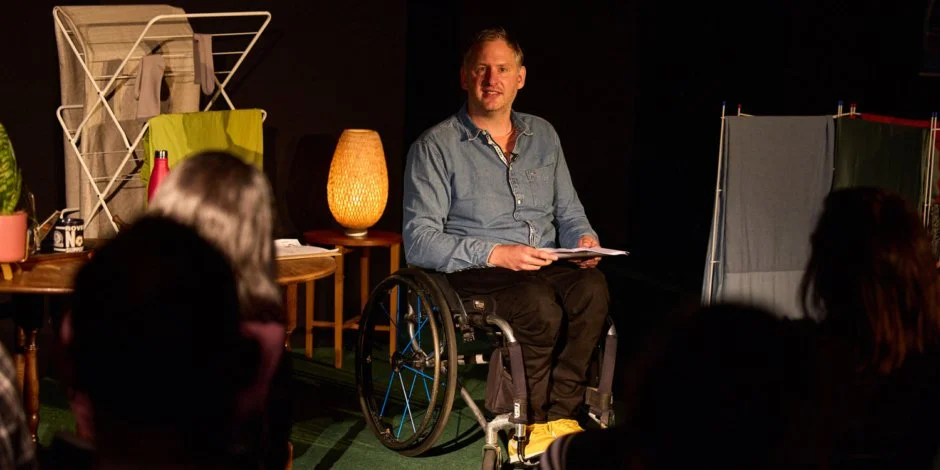Suicide Prevention, Time To Talk
TRIGGER WARNING: This article includes reference to suicide, self-harm and depression.
There is always light at the end of the tunnel, however, this is something that a suicidal person may struggle to see without the correct help, guidance and communication. By learning about statistics, warning signs and prevention, we may aid those who are in need of support.
Although devastating, it is vital we learn and talk about suicide, with campaigns such as Britain Get Talking and Time To Change aiding the conversation and normalisation of society freely discussing mental health.
The World Health Organization estimates that approximately 1 million people die each year from suicide, in so much pain that they see no other option. Hopefully, as we learn more about mental health and abolish the stigma that surrounds the topic, this number decreases.
A great way to learn about preventing suicide and navigating the tough situation is through taking the free Zero Suicide Alliance training course. It only takes around 20 minutes of your day and may help you to save a life.
NOTICING THE WARNING SIGNS
It is impossible to pinpoint a singular factor to suicide because every person is different and the mind is incredibly complex. However, the vital first step to suicide prevention is noticing the warning signs.
Suicidal people often feel hopeless and pessimistic about the future - one of the many signs is a person hinting that they have no hope or aspirations for themselves.
Another thing to look out for is a person being preoccupied with death, for example, saying they want to die or being fixated on that happening. They may also be reckless with alcohol, drugs and dangerous activities due to being unphased by the possibility of death.
Self-harm is another huge warning sign that somebody is suicidal and has a negative relationship with themself and their life.
The image below presents more of the warning signs in an easily accessible way. By familiarising yourself with these, you may save a life. If you notice the signs in somebody, it is important to start an honest conversation and guide them towards help.
RESPONDING TO THE WARNING SIGNS
Picking up on these warning signs and acting upon them is crucial. Providing a suicidal person with both professional help and emotional, friendly help may guide them in the right direction.
Be A Friend
Depression can be isolating and the mind can trick people into believing they have nobody to support them. As a friend, you could help them to make positive lifestyle changes and begin talking about feelings regularly and honestly.
Whether it’s a “How are you?”, a “Have you seen that recent tv show?” or an “I can’t wait to see you”, being a friend and reaching out reminds people that they are loved, valued and cared about. Speaking about emotions is far from shameful, in fact, it’s very beneficial.
A suicidal person might struggle to open up this conversation therefore having a friend looking out for them may aid their journey towards emotional vulnerability and betterness. Offer them hope and provide them with resources to gain professional help.
Seeking Professional Help
Although your hand to hold and a friendly shoulder to cry on can certainly help a suicidal person; trained professionals are there for those in urgent need of support.
The warning signs cannot be ignored, underestimated or swept under the carpet!
If the risk of suicide is imminent, (ie: somebody has a suicide plan or is preparing to end their life) ensure the individual is not left alone and get immediate help by going to the emergency room, call 999 or a local crisis centre.
HOTLINES, NUMBERS AND WEBSITES
If you need immediate help call emergency services or Samaritans on 116 123
Suicide.org has a list of all international suicide hotlines.
The NHS has a page dedicated to supporting suicidal people
CALM has information, a webchat and a helpline: 0800 58 58 58
The National Suicide Prevention Lifeline: 1800 273 8255
CHARITIES TO DONATE TO
There are many amazing mental health charities you can make a difference by donating to.
Samaritans charity offers support and a helpline 24 hours a day. Donations can fund the much-needed counsellor phone calls when someone is struggling to cope.
Mind uses donations to aid those struggling with a variety of different mental health conditions by running an informative website and providing people with resources to aid their journey to better wellbeing.
Papyrus is a charity revolving around preventing the suicide of young people. By donating, you help fund their hotline and teach young communities how to recognise and respond to suicidal behaviour through resources and training.
Nightline is a support network for students, run by students. They have conversations over phone or messages each night from students who are experiencing troubles so the money donated could help fund training in order to help young people who are struggling.
“One life lost is one too many”.
Suicide is preventable. Let’s end the stigma, get learning, get talking and prevent suicide.
Help us keep the City Girl Network running by supporting us via Patreon for the price of a cheap cup of coffee- just £2 a month. For £3 a month you can also get yourself a Patreon exclusive 10% off any of our ticketed events! You can also support us by following us on Instagram, and by joining our City Girl Network (city wide!) Facebook group.
Written by Grace Tobias














